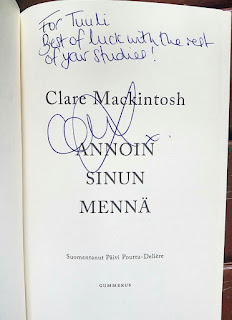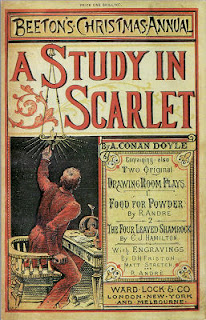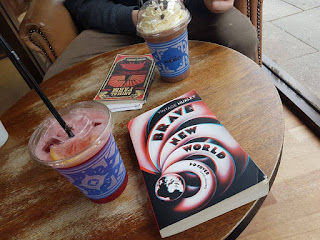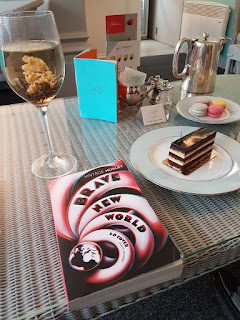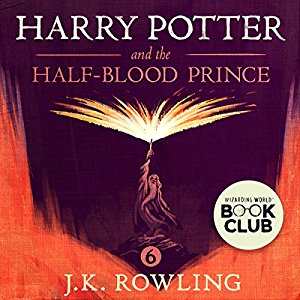
'Nobody's ever asked me to a party before, as a friend. Is that why you dyed your eyebrow, for the party? Should I do mine too?' (Luna Lovegood being a precious creampuff)
My previous Harry Potter reviews are here if you need them or like, want to look at them or something.
Harry Potter and the Half-Blood Prince is the sixth installment of the beloved franchise. Some things are expected at this point: quality writing and plot developments et cetera. This book is very dark when compared to the earlier ones, and it's definitely something I welcomed with open arms. Even though Harry may well be 'the chosen one', he still carries numerous scars from what has happened in the previous books. It doesn't come without a cost, one could say.
This might just be my favourite Harry Potter book. I'd say it has something to do with not having seen the movie, and while that's probably a big part of it... The events of this book were really interesting to me. It gives more depth to Dumbledore and Snape, and most interestingly, Tom Riddle. I loved to learn about Tom so much, I was clearly looking forward to those lessons more than Harry was. Tom Riddle: The Early Years is definitely yet another prequel I would much rather take over Fantastic Beasts... just saying. I also enjoyed the Half-Blood Prince bit, and I was not expecting it to turn out the way it did. That actually goes for many things in this book, as there were not many
My favourite thing about Rowling's writing is the fact that the books have a lot of detail seemingly scattered around over the whole length of the book but it all makes sense by the time you finish the book. Like 'hey, remember this tidbit 400 pages ago? Surprise, it's back!' It's amazing and I can't even imagine being able to write something that intelligent. I feel like a clutz in a small, tightly packed second-hand bookstore in comparison to the beauty of this thing.
What is there one can really say about these books, at this point? I enjoyed this immensely, and it was a real pleasure to read. I'm at a loss of anything else I can say. Sorry about that. I started Deathly Hallows as well, and I'm already mourning finishing it. These books really are good.
Tonks is my favourite character. She's so cute and happy. She might die now that I've admitted this.
For the Helmet 2017 reading challenge I put this in category 31: A fantasy book!




